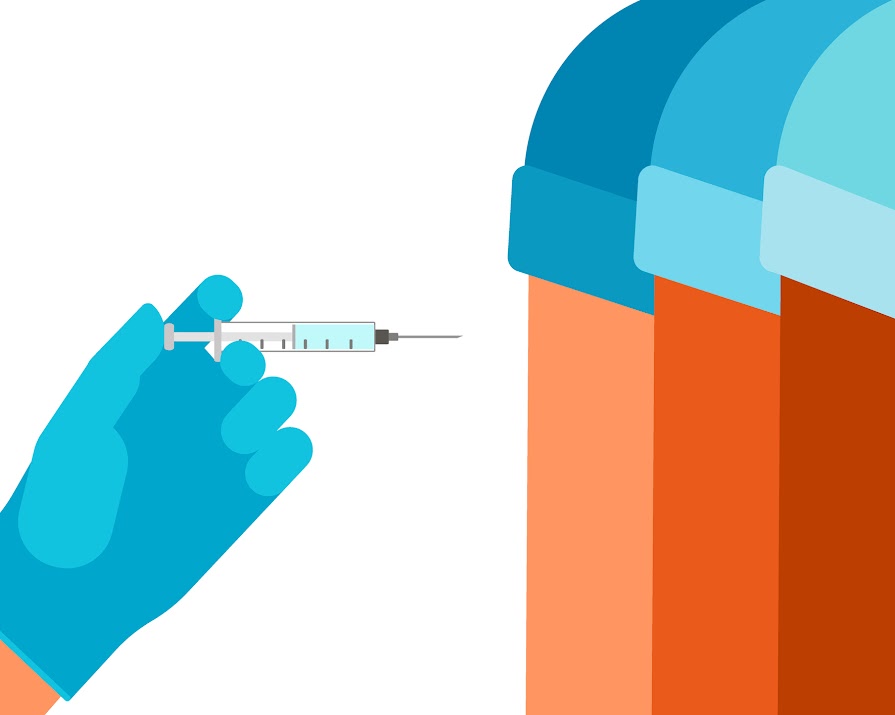By Lauren Heskin
18th Jan 2021
18th Jan 2021
There’s been a lot of chat about a vaccine delay this week. Government announced a shortfall in the next delivery of the Pfizer vaccine, hospitals are complaining that vaccines never arrived and the UK have pushed out the second dose of the vaccine from three weeks to three months. So what’s going on?
The government announced on Friday that there would be a short-term delay in delivery of the Pfizer vaccine. Tánaiste Leo Vradkar said that due to upgrades at the Pfizer plant, Ireland will receive 36,075 doses this week rather than the expected 43,875.
Meanwhile, the government also said that nursing homes will now be prioritised, despite slow roll-outs to some hospitals. Dun Laoghaire hospital St Michael’s said yesterday that three shipments of vaccines promised have yet to arrive at the hospital and they were told not to expect any for another week or two. On Friday, Nenagh hospital released a video fo staff begging Taoiseach and the Minister for Health to sanction the rollout of the vaccine there.
“We’re so angry. We’re scared. We’re afraid.”
Nurses, doctors and staff at Nenagh Hospital – treating #COVID19 patients – say they’ve not been given a date for vaccination.
They say staff are getting sick every day – and they’re being left without any clarity.@VirginMediaNews pic.twitter.com/awbvz1RxNC
— Richard Chambers (@newschambers) January 15, 2021
In the UK, second doses for the vaccine are being pushed out from the recommended 21 days to 12 weeks.
Vaccine Delay
Do we have a shortage? Well yes and no. While Ireland (and the rest of Europe) will receive a smaller batch of Pfizer vaccines than expected this week, production will return to normal next week. The upgrades to the plant will also allow the Belgian plant, which serves Europe’s vaccine quota, to increase production from 1.3 billion doses per year to two billion doses by mid-February. This means the reduced capacity this week is a short-term delay for a medium-term gain.
This weekend also saw almost all of the nation’s GPs receive their first dose of the vaccine, which is important as the EU looks set to approve the Oxford AstraZeneca vaccine by the end of the month. This vaccine does not require the sub-zero storage temperatures needed by the Moderna and Pfizer vaccines and therefore can be more easily distributed across the country for GPs to administer.
The government expects the addition of the AstraZeneca vaccine will enable weekly vaccinations to increase for the current 40,000 to 100,000 in February. In fact, in terms of EU distribution, Ireland actually scores quite highly. As of January 13, Demark was the only EU country to have distributed more vaccines than Ireland.
This will continue to ramp up as more vaccines come on the market and Government are estimating that everyone will have received their first dose by September 2021.
Updated vaccination rollout schedule -including those aged 55 – 64.
14/Jan/2021 pic.twitter.com/9NrPb1rxpa— Ossian Smyth TD (@smytho) January 14, 2021
And the UK?
They began by taking the risk on the Pfizer vaccine and emergency approving back in December, which required less proof of safety. It paid off, with a number of countries following suit and allowed the UK to get the jump on vaccinations.
Now, they’re deciding to take on another risk by delaying the second dose of the vaccine from three weeks to 12 weeks. The UK has decided to prioritise giving everyone one dose and some percentage of immunity before focusing on the second dose.
The risk is that there is no clinical trial data on how immunity from the first dose will last beyond the prescribed 21 days and the makers of both vaccines have staunchly opposed the move. It’s a wait-and-see game – one that they won last time.
Featured image: Getty
Read more: Working parents without access to childcare are eligible for PUP
Read more: Frontline healthcare workers in Ireland are asking for their citizenship to be fast-tracked
Read more: Long Covid: ‘I never expected chronic fatigue and its impact on my family’























